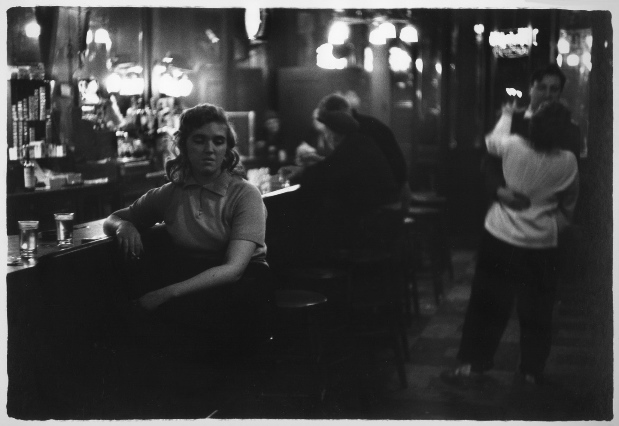
[William Gedney]
What with one thing or another I'm sure many of us never made it to church this past Easter. My own personal feeling about attending church is exactly that of Madea, a recurring character in the films of Tyler Perry, who says she'll go to church when they put in a smoking section. Madea and I, both smokers, are not holding our breath — what's left of it.
Some of us may be wondering what we missed by failing to attend church on Easter, but we need wonder no longer. Click here to listen to an actual sermon preached by my friend PZ this past Easter at a church in the Washington, D. C. area. It's the real deal — no pussyfooting around. He speaks of the Resurrection as a literal, historical event, and he speaks of Heaven as a real place.
It's not for the faint of heart.
But listen to the ideas behind the images, listen to the psychology of it. It's not as crazy as it seems — or perhaps it would be more accurate to say that its very craziness is invested with some serious counter-intuitive wisdom.
[William Gedney]
Consider the Heaven that Dr. Z speaks of, where we will meet those who hurt and wounded us in this life, but meet them transfigured by Grace into the people we wanted and needed them to be. Consider the very notion of Heaven, which must by definition be wholly transcendent and eternal — which must be outside of time . . . must be indeed a rebuke to time, a negation of time. In short, if we're going to Heaven, we're already there . . . always have been, always will be. Heaven, destroyer of time, cannot be a future eventuality.
Jesus said, “The kingdom of God is at hand” — not “coming soon to a theater near you”, but here . . . as close as your outstretched fingers. He said, “The kingdom of God is within you.” All of Buddhism is a meditation on this idea. Eastern spiritual traditions have always been more eloquent on this aspect of Jesus's teaching than Western institutionalized Christianity.
There have been some exceptions to this rule in the Western Christian tradition. Kierkegaard said, “Life can only be understood backwards, but it must be lived forwards.” Isn't “Heaven” just a way of imagining life backwards — making sense of it retrospectively while we're in the midst of its chaotic nonsense?
[William Gedney]
The peroration of Dr. Z's Easter sermon is borrowed from Bob Dylan:
The cards are no good that you're holding,
Unless they're from another world.
All questions of theology aside, this is a difficult proposition to refute from actual life experience . . . yours, mine, anybody's.
